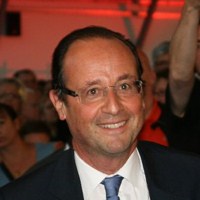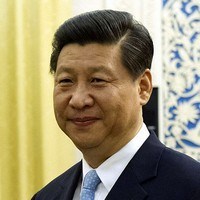The day after the Sept. 11, 2001, attacks on New York City and Washington, I wrote in my notebook, “The big question of the next few years will be whether an 18th-century Constitution is adequate for security in the 21st century. The nation will have a huge debate on this.” As it turned out, I was correct on the first assertion. When drafting the Constitution, America’s Founding Fathers could not have anticipated the intense connectivity of the modern world, where catastrophes of any kind have cascading effects both tangible and psychological. They could not anticipate the existence of small cells […]
Economics & Business Archive
Free Newsletter

This weekend’s informal U.S.-China summit in California had several key objectives: personal trust building between U.S. President Barack Obama and his Chinese counterpart, Xi Jinping; halting the negative momentum in bilateral relations; reducing tensions regarding disputed issues; and signaling to domestic and international audiences that the United States and China can work together. But the main objective—and outcome—of the meeting was mutual reassurance. The summit resulted in only general statements and did not achieve specific policy commitments. But it came at a very early date in China’s domestic political cycle, just three months after the completion of Beijing’s power transition. […]

Collective defense is a coordinated response to a common security problem by two or more countries. The core of collective defense is political: a commitment by different nations to come to each other’s aid if attacked. Existing collective security arrangements for the U.S. and its allies were designed for one kind of threat. Now they must deal with others, including new threats, if they are to remain relevant to national security. In particular, the U.S. and its allies agree that it would be useful to extend collective defense arrangements against potential cyberattacks, but implementation has proven difficult because of the […]

French President Francois Hollande’s three-day visit to Tokyo, where he met with Japanese Prime Minister Shinzo Abe, resulted in major agreements on nuclear cooperation and joint development of military hardware. The summit, which also covered a range of other topics, reflected the noticeable improvement in recent years of the two countries’ already solid bilateral ties. Despite often being rivals for foreign contracts, Japan and France remain closely bound through cooperation on advanced technologies. Indeed, the agreement to increase nuclear cooperation was not a total surprise considering that a French-Japanese consortium just won a lucrative $22 billion joint bid to develop […]

Last month, Taiwan imposed sanctions on the Philippines over the shooting death of a Taiwanese fisherman by the Philippine coast guard in disputed waters. In an email interview, Hui-Yi Katherine Tseng, a research associate at the East Asian Institute who has researched trade and conflict management in East Asia, discussed ties between Taiwan and the Association of Southeast Asian Nations (ASEAN) and how the current dispute is likely to affect them. WPR: How extensive are trade and diplomatic ties between Taiwan and ASEAN and its member states? Hui-Yi Katherine Tseng: The logic of redressing its overreliance on economic ties with […]

In an unusual and potentially momentous informal summit, U.S. President Barack Obama and his Chinese counterpart, Xi Jinping, will today begin three days of talks at a Californian desert ranch in what are being briefed as wide-ranging discussions on high-level strategic issues. Commentators are focusing on the potential for a personal rapport between the two leaders to emerge, with significant effects on broader relations between the world’s two most important nation states. But the initiation of a major strategic shift is dependent on the two sides overcoming a series of persistent disagreements and managing respective domestic pressures that limit the […]

The recent buzz about Africa’s economic progress and potential has aroused long-overdue interest from investors. While the bullish mood is largely justified, it should not obscure the fact that many institutional, infrastructural and policy barriers limit the scope for transformational growth. One of the most serious is that African markets are not sufficiently open. African countries simply do not trade enough with each other. This has huge consequences for a continent where 15 countries are landlocked and where colonial-era boundaries have produced many small, resource-poor nations that are not economically viable by themselves. Some African countries have begun to address […]
During a visit to Myanmar late last month, Japanese Prime Minister Shinzo Abe extended new aid to the country and canceled Myanmar’s debt with Japan. In an email interview, Sean Turnell, an associate professor in the economics department at Australia’s Macquarie University specializing in Myanmar, explained the recent trajectory of Japan’s ties with the country. WPR: What has Japan’s approach been to Myanmar over the past decade, and how has that changed since the end of military rule in Myanmar? Sean Turnell: For most of the past decade, Japan’s strategy toward Myanmar has been one of “watching and waiting.” Responding […]

For all the focus on contemporary Iran, relatively little attention is paid to its trilateral ties with Afghanistan and Tajikistan, the geolinguistic remnants of an eclectic series of empires collectively denominated Persian. Since 2005, Iranian President Mahmoud Ahmadinejad has made it a point to revive Persian nationalism, contrasting it with the clerical elite’s claim to Islam as the exclusive basis of Iranian identity. Significantly, Ahmadinejad’s nationalist rhetoric was accompanied by a raft of summits, forums and agreements among the three countries, which he called “limbs of the same body,” echoing the 13th-century Persian poet Saadi. Despite the historical echoes, however, […]

Last week, at a joint press conference with Chinese Premier Li Keqiang during Li’s visit to Berlin, German Chancellor Angela Merkel openly disagreed with the European Commission’s plans to impose punitive tariffs against Chinese-made solar panels. The commission has accused China of unfair trade practices that undercut European producers. But Merkel’s concerns for German exports to China took precedence over European Union solidarity, highlighting the difficulties Brussels has faced in forging a unified policy toward Beijing. China has been a strategically important partner for Europe for at least two decades, but the economic crisis in Europe has changed the nature […]

The latest meeting of the leaders of the Pacific Alliance on May 23 in Cali, Colombia, was the best one yet, suggesting that this new economic bloc is an emerging powerhouse in Latin America. The alliance is an effort by Chile, Colombia, Mexico and Peru to link their economies more closely together through trade, finance and labor market integration to build mutual economic competitiveness. It is one of the most dynamic and potentially significant developments in hemispheric trade relations since negotiations to form a Free Trade Area of the Americas (FTAA) broke down in 2003. In the intervening decade, China’s […]

Last week, operators of the Liberty Reserve currency exchange were indicted for laundering $6 billion. Liberty Reserve was part of a growing industry of online payment systems that allow illegal enterprises, from child pornography to weapons trafficking, to move money within an unregulated system, creating a hub for criminal conduct that is both centralized and global. Explaining that the indictment will serve as a temporary blow to money launderers and others moving money on the boundary of legality, Gurpreet Dhillon, a professor of information security at Virginia Commonwealth University’s School of Business, told Trend Lines that digital currencies are here […]
